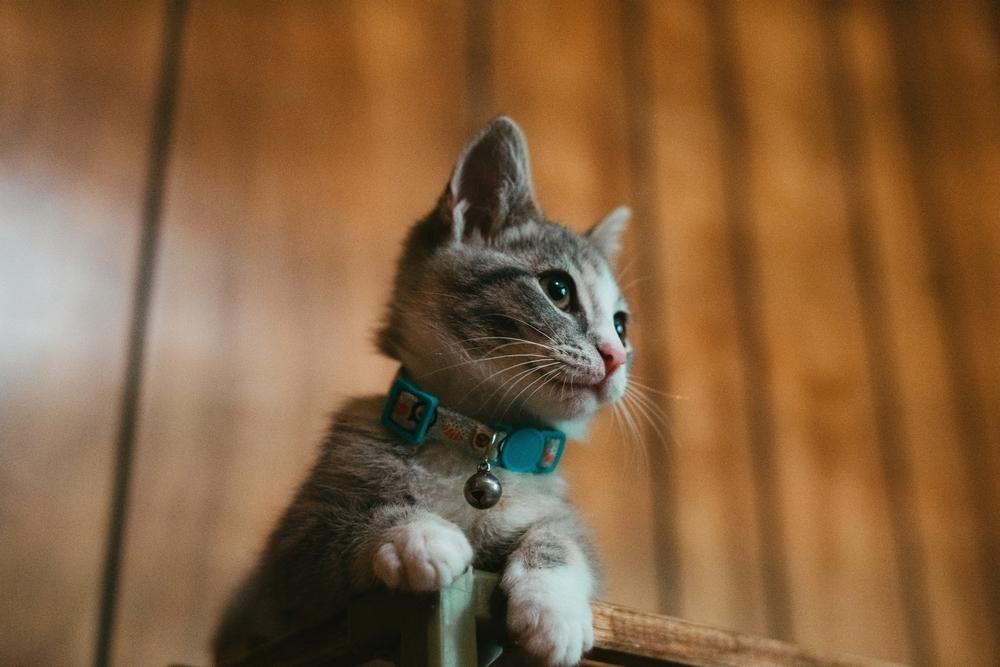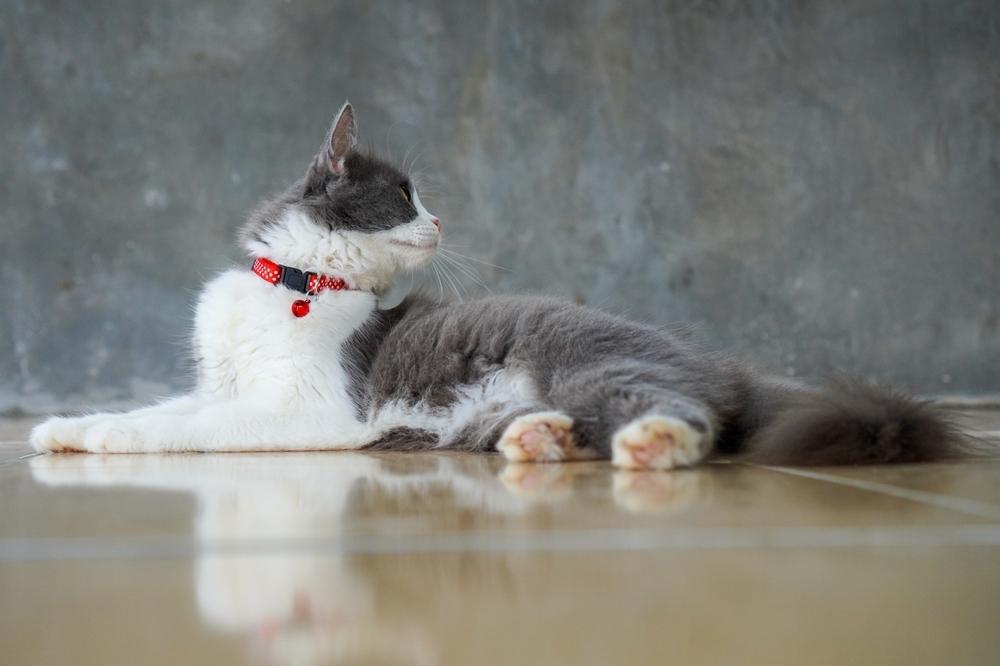
Many people think of cats as independent, but that perception often overlooks how much they value companionship and affection. In multi-pet homes, cats not only bond with their human families but often enjoy the company of other animals, too. Even feral cats form strong social connections with one another. So, do house cats get lonely?
Given that cats appreciate companionship, you might be wondering: How long can you leave cats alone? Do they feel lonely when left for extended periods? What are the signs of loneliness in cats?
The answer depends on your cat's personality and needs. Some cats are more independent, while others are deeply bonded and more sensitive to being left alone. Read on for a general sense of what's safe and healthy and what to do when you leave your cat home alone to help them feel content in your absence.
Cats who are closely bonded to their humans or animal companions can experience stress when left alone for too long, and prolonged stress can take a toll on both their physical and emotional well-being. When deciding how long it's safe to leave your cat alone, consider where your cat fits within these broad categories.

Kittens
Can you leave a kitten home alone? Should you? Like all babies, kittens have different needs than healthy adult cats. They require more frequent meals and potty breaks, and they sleep up to 20 hours a day. Because they're curious and full of energy in short bursts, they can also easily get into trouble when left unsupervised.
Cats are natural grazers, ideally eating small amounts throughout the day. Kittens in particular have small stomachs and high energy needs, making it even more important to offer several meals a day — typically three to four meals until around six months of age, and at least twice daily after that. You may even need to wake up a sleeping kitten to make sure they eat on schedule. The amount each kitten is fed will depend on their individual needs — a veterinarian can help determine the proper feeding amount. The length of time you can leave a kitten alone should align with their feeding schedule and required level of supervision.
Here are some general guidelines for leaving kittens alone:
Under six months: Limit alone time to two to three hours at a time.
Over six months: Alone time can extend to four to six hours.
In all cases, always ensure you've kitten-proofed the space — remove cords, secure furniture and block access to small objects or dangerous areas. If you must be gone for a longer stint, arrange for a pet sitter or friend to check in on your kitten periodically.
Healthy Adult Cats
Most healthy adult cats sleep twelve to sixteen hours a day, broken up into short naps throughout the day. Over time, they often adjust their routines around your schedule, sleeping more while you're away at work, for example, and becoming more active when you're home. Depending on whether your cat eats meals or free-feeds, you can leave dry food out or use a timed feeder for wet or dry food.
The general guidelines for healthy adult cats are:
Eight to twelve hours: Safe for most healthy adult cats.
Twenty-four hours: Occasionally okay if food, water, a clean litter box and a safe, comfortable environment are available.
Forty-eight hours: Avoid leaving a cat for two days unless absolutely necessary, such as in an emergency.
Remember that unexpected issues can occur while you're away: water bowls can spill, timed feeders can malfunction and your cat could become ill or injured. If you aren't sure how long you'll be away or plan to be away for longer than 24 hours, arrange for care.
Senior Cats
Cats are generally considered "senior" at age seven. While many healthy senior cats can be left alone for the same amount of time as adults, senior cats tend to sleep more and may develop age-related health conditions that require closer monitoring.
For example, a diabetic senior cat may need medication at regular times each day. Routines like this will determine how long you can leave your cat alone. Monitor your senior cat's health closely, and adjust their care plan as needed. In general, shorter absences are safer — don't hesitate to enlist pet-sitting support!
While separation anxiety in dogs is well-documented, fewer studies have evaluated these behaviors in cats. According to a National Institutes of Health (NIH) report, anecdotal evidence suggests that 13–19% of cats may exhibit signs of distress when left alone. These behaviors may include vocalizing, destructive scratching, knocking over objects, inappropriate urination or defecation (often on or near your bed), excessive grooming or appearing withdrawn or apathetic.
While previous studies suggest that older female cats might be more prone to separation anxiety behaviors than male cats, the NIH survey found no differences based on sex, breed or whether the cat was adopted from a shelter or elsewhere.
Cats with separation anxiety typically act out within the first twenty minutes or so after you're gone. That said, stress from other causes — such as environmental changes like a new home or guests visiting — can also result in similar behaviors (e.g., inappropriate urination or increased scratching). Fortunately, providing adequate enrichment in the form of toys, puzzles, scratching objects and interactive play can significantly reduce stress and separation-related behaviors.
In multi-cat households, cats can provide each other with companionship and comfort, reducing loneliness and the risk of separation anxiety. If your cats get along well, you can typically leave them alone for the same length as singleton felines as long as you provide plentiful resources.
For cats who don't get along, leaving them unsupervised increases the potential for conflict. Most feline disputes arise over resources like food, water, litter boxes and sleep spots, so it's important to ensure there are plenty of resources for all cats. This helps prevent problem behaviors while you're away. If needed, separate your cats while you're gone using pet gates or relegating them to different areas of your home. Provide all the necessary resources and enrichment in both spaces.
Sometimes you have no choice but to leave your cat home alone. Whether it's a short workday or a longer trip, here's how to help keep your cat safe, comfortable and stress-free and give yourself peace of mind.
Essentials to Provide
Clean litter boxes (multiple in different rooms if you have more than one cat or will be gone longer than a day)
Food bowls for grazing or automatic feeders
Stable, spill-proof water fountains
Puzzle feeders and toys
Scratching posts and climbing perches (one per cat)
Window views with bird feeders or birdbaths outside for entertainment
A pet camera, if available (some options even include treat-dispensing features and/or two-way audio)
Background noise, like TV or music
Safety Tips
Close off any unsafe areas, like laundry rooms or garages, and eliminate potential hazards. Confine kittens or playful cats to a "home base" room with all the essentials.
Leaving a Cat for Three Days or More
If you're planning on leaving a cat for three days (or leaving a cat for four days, and so on), make arrangements for a pet sitter, neighbor or other reliable person to check in at least once a day. Provide your contact information and leave clear written instructions, including your cat's:
Name(s)
Feeding schedule
Medication, if applicable
Veterinarian contact information
Personality quirks
Favorite toys, games and calming techniques
If your cat requires multiple medications or complex care, many vets provide medical boarding for cats.
Now that you know how to leave a cat home alone, help them learn how to adapt to your absence through gradual practice using these strategies:
Start with short departures to build your cat's independence. Walk out the door and immediately come back inside three times in a row. Then, go out for five minutes and come back. Repeat. Gradually increase to ten or twenty minutes. Toss a treat when you leave (some cats may decide they want you to leave to get the treat!).
Decondition departure cues. Pick up your keys or put on your coat several times a day — but don't leave — so these triggers lose their emotional impact.
Set up a safe and comfortable "home base" with all the essentials. Practice leaving your cat there for short periods, then reward them afterward.
If a sitter will visit, introduce your cat to them ahead of time. Let the visitor give treats or engage your cat in play so they're a familiar, positive presence.
The next time you wonder, "How long can I leave my cat alone?" consider your cat's personality and individual needs. In general, you can leave cats alone from time to time as long as you've provided all the essentials and arranged for a pet sitter when appropriate. Plan responsibly and adjust as needed to keep your cat content in your absence — once you return home, they'll be happy to have you!

















